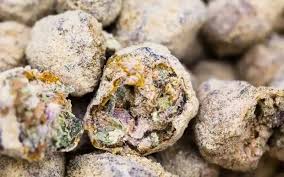Rock Weed, In the diverse world of marine flora, rock weed stands out as a fascinating and versatile plant. Also known as Fucus vesiculosus, rock weed is a type of brown algae commonly found along rocky coastlines in the Northern Hemisphere. Its unique properties and ecological importance make it a subject of interest for both scientists and nature enthusiasts alike.
What is Rock Weed?
Rock weed is a type of brown seaweed that thrives in intertidal zones where it can anchor itself to rocks with its holdfast. Characterized by its branching structure and small, air-filled bladders (known as vesicles), rock weed is well-adapted to the harsh conditions of tidal environments. These bladders help keep the algae afloat, allowing it to access sunlight even when submerged under water.
Ecological Importance
Rock weed plays a crucial role in its ecosystem. It provides habitat and food for a variety of marine organisms, including small fish, crustaceans, and mollusks. The dense mats of rock weed offer protection from predators and strong currents, creating a microhabitat that supports diverse marine life.
Additionally, rock weed contributes to the health of coastal ecosystems by helping to stabilize shorelines. Its holdfasts secure sediments and prevent erosion, while its growth contributes to the overall biodiversity of intertidal zones.
Human Uses and Benefits
Beyond its ecological value, rock weed has several practical applications. Historically, it has been used as a natural fertilizer due to its high nutrient content, particularly potassium and iodine. It is also utilized in the production of various products, including alginates, which are used as thickening agents in the food and pharmaceutical industries.
In some cultures, rock weed is harvested for culinary use. It can be eaten raw, added to soups, or used as a flavoring agent. Its unique taste and texture make it a sought-after ingredient in gourmet cooking.
Conservation and Sustainability
While rock weed is resilient, it faces threats from environmental changes such as pollution and climate change. Overharvesting and habitat destruction can also impact its populations. Conservation efforts are essential to ensure that rock weed and its associated ecosystems remain healthy and sustainable for future generations.
Researchers and conservationists are working to monitor rock weed populations and develop sustainable harvesting practices. By raising awareness and promoting responsible management, we can help preserve this valuable marine resource.
Conclusion
Rock weed is more than just a common seaweed; it is a vital component of marine ecosystems with significant ecological, economic, and cultural value. Its unique characteristics and versatile uses highlight the importance of preserving coastal environments and promoting sustainable practices. As we continue to explore and understand the wonders of rock weed, we also gain insight into the intricate balance of marine life and the need to protect our natural world.
You Might Also Like These:



